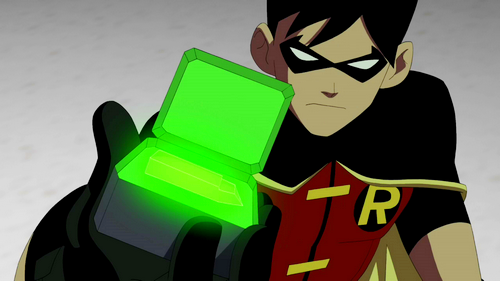What If We're Wrong? Steelmanning The Case Against Crypto
/Augur, the decentralized prediction market built on Ethereum, has been running for two weeks. Since then, the money at stake in the system has grown to $1.5 M, making it one of the highest profile DApp launches to date. In many ways, it is demonstrating the potential decentralized platforms hold. That potential, it turns out, is both good and bad.
A steelman argument is the opposite of a strawman: one makes the best argument possible for the opposing view
A Market For Murder
Already, so-called "assassination markets" have begun to crop up on Augur. By allowing betting on whether a public figure will die in a given time period, an incentive to murder is created. Hopefully we can agree we don't want that. What's less clear is what we can do about it. Augur is decentralized. Its creators recently disabled their escape hatch, i.e. their kill switch. Even if they had shut it down, someone would surely have launch a version that can't be turned off. So what now?
There are a lot of arguments against crypto-- doubts about scaling, misunderstandings around energy use, uninformed claims that it's value-less because it's "not real." These arguments are weak and fall apart under scrutiny.
The situation with Augur cuts to the heart of the one thought that truly makes me doubt my enthusiasm about this technology: what if we're wrong about the benefits of decentralization itself? What if centralized authority is actually critical for civil society, and we're in the process of destroying it?
Déjà Vu All Over Again, Again
I've written before how much the crypto community could learn from the lessons of the internet itself. This case is no different.
It's hard to remember now in 2018, but there was a time when many had a near-utopian view of the internet's impact on the world. By connecting all of humanity with a decentralized network, we would end our divisions and enrich each other's lives. Once we could talk with each other across the globe, we would recognize our shared humanity and erase our cultural differences. The end state would be a unified humankind. So the story went.
Our AOL personas once ran Eagerly into the arms of a happy online family. These were simpler times.
The reality, which we've only really started to grasp in the last few years, has been close to the opposite. When we can read and watch whatever we want, we choose the content that confirms our biases. When we can talk to whomever we want, we find exactly the community of people we most agree with. Rather than uniting us, the democratization of content and communication has balkanized us. We've opted into our own filter bubbles, and once there, radicalized ourselves in a flurry of self-indulgent groupthink.
The result is the degradation of our politics, the polarization of virtually all discourse, and the rise of ideas that were, even very recently, far on the fringe. Scott Alexander put it succinctly in a recent piece on his blog:
If you spend decades inventing a powerful decentralized network to allow unpopular voices to be heard, sometimes you end up with unpopular voices being heard
If it's true that the decentralizing force of the internet has pushed public discourse to the brink of collapse, then what havoc might yet be wrought by crypto? We're inventing powerful, un-censorable, decentralized networks to allow anyone to transact with anyone anonymously. Should we act surprised when unsavory transactions occur? Murder markets, and a hundred other nauseating trades, may be here to stay. Can society function if they are?
Whither Kryptonite?
This is the fear that keeps me up at night-- that make me question my involvement in this crazy space. This is the steelman to my optimism around crypto. Yet here I am, still learning and building. Why? Because the alternative is unacceptable.
The risk of steelmanning your opponents argument-- you might convince yourself!
If centralized authority is required for civilization to function, it implies that people cannot be trusted with their own free will. It means that there must always exist some superior elite-- granted the unilateral power of censorship and violence-- tasked with putting guard rails around the otherwise-destructive tendencies of the unwashed masses.
Given that people with power have committed the worst atrocities in history, this seems unlikely. If we must rely on some supermen to protect us from ourselves, then perhaps we are truly doomed. I don't believe we are, and net everything, I believe both the internet and crypto will be good for the world.
Still, we should not charge forward with blinders on, pretending there are no downsides to the technology we're creating. Without a doubt, it will be used nefariously by some. It already is. More than that, it has the potential to disrupt much of the status quo. In the process, it will create as great a tumult for society as the internet itself has-- or worse. As technologists on the bleeding edge of this new world, we should be wary of these risks. Let us wield our privileged position responsibly.
Note: Build Blockchain Tech does not hold copyrights to the images used in this post. They are reproduced here under the doctrine of fair use.



